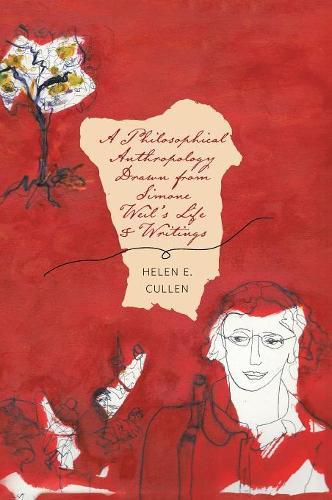Readings Newsletter
Become a Readings Member to make your shopping experience even easier.
Sign in or sign up for free!
You’re not far away from qualifying for FREE standard shipping within Australia
You’ve qualified for FREE standard shipping within Australia
The cart is loading…






This title is printed to order. This book may have been self-published. If so, we cannot guarantee the quality of the content. In the main most books will have gone through the editing process however some may not. We therefore suggest that you be aware of this before ordering this book. If in doubt check either the author or publisher’s details as we are unable to accept any returns unless they are faulty. Please contact us if you have any questions.
A Philosophical Anthropology Drawn from Simone Weil’s Life & Writings situates Weil’s thought in the time between the two world wars through which she lived, and traces Weil’s consistent conception of a mind-body dualism in the Cartesian sense to a dualism that places the mind within a carnal part of the soul and establishes an eternal part of the soul as the essence of human beings.
Helen Cullen argues that in Weil’s early conception of human nature, her Cartesian conception of perception already shows a glimpse of the eternal. Weil’s dualistic conception also forms the basis of her political analysis of the left of her time, and through working in factories and in the fields, she develops a conception of labour as a theory of action and work with a method. Weil was influenced by leading thinkers of her time, prompting her to do an analysis of current scientific theories.
Cullen argues that Weil’s analysis of Christianity, already present in Greek philosophy, shows us a theory of identical thought inherited from the East (India and China) and brought forth by peoples around Israel. This theory leads to Weil’s analysis, developed in The Need for Roots, of how we’ve been uprooted through colonization and how we can grow roots in a free local society (both rural and urban).
$9.00 standard shipping within Australia
FREE standard shipping within Australia for orders over $100.00
Express & International shipping calculated at checkout
This title is printed to order. This book may have been self-published. If so, we cannot guarantee the quality of the content. In the main most books will have gone through the editing process however some may not. We therefore suggest that you be aware of this before ordering this book. If in doubt check either the author or publisher’s details as we are unable to accept any returns unless they are faulty. Please contact us if you have any questions.
A Philosophical Anthropology Drawn from Simone Weil’s Life & Writings situates Weil’s thought in the time between the two world wars through which she lived, and traces Weil’s consistent conception of a mind-body dualism in the Cartesian sense to a dualism that places the mind within a carnal part of the soul and establishes an eternal part of the soul as the essence of human beings.
Helen Cullen argues that in Weil’s early conception of human nature, her Cartesian conception of perception already shows a glimpse of the eternal. Weil’s dualistic conception also forms the basis of her political analysis of the left of her time, and through working in factories and in the fields, she develops a conception of labour as a theory of action and work with a method. Weil was influenced by leading thinkers of her time, prompting her to do an analysis of current scientific theories.
Cullen argues that Weil’s analysis of Christianity, already present in Greek philosophy, shows us a theory of identical thought inherited from the East (India and China) and brought forth by peoples around Israel. This theory leads to Weil’s analysis, developed in The Need for Roots, of how we’ve been uprooted through colonization and how we can grow roots in a free local society (both rural and urban).